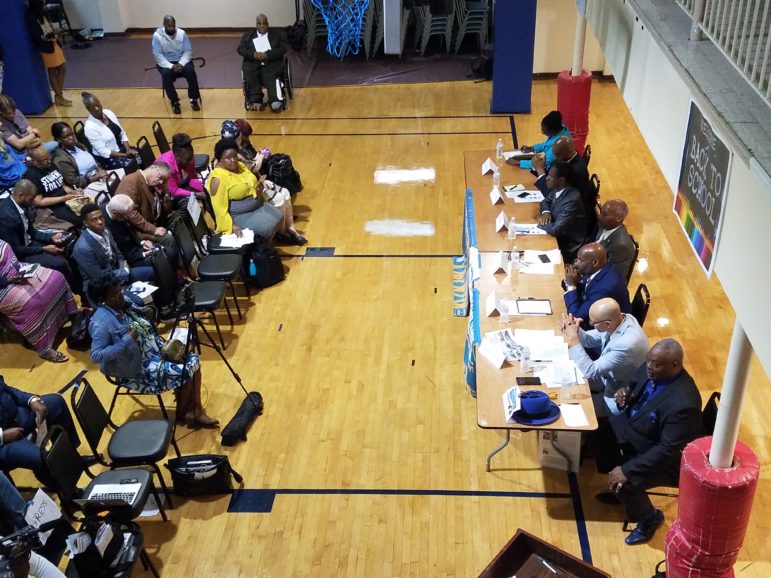
Jarrett Murphy
The six Democrats and one Republican vying for the District 9 seat. Jack Royster, the lone Republican, holds the mic at bottom.
Bill Perkins sat in the middle of a long table on Thursday night flanked by people trying to end his two-decade career representing Harlem in the City Council, then in the State Senate, and now in the Council again.
He looked a size smaller than his rivals in next week’s Democratic primary: Marvin Holland, who stood up tall for every answer; Marvin Spruill, broad-shouldered and bow-tied, gripping the microphone like a power tool; Tyson-Lord Gray with the broad smile and command of policy detail; Julius Tajiddin, razor-like in his thinness and the intensity of his answers; Jack Royster, gentle-voiced and barrel-chested as he spoke about his life after a life of crime; Cordell Cleare, the only woman on stage and the only one who made full use of the microphone to load just about every word with precise, controlled outrage.
And there in the middle was Perkins, quiet, slim and gray, clad in the dignified neutrality of a light grey suit and white tie. Most of his answers to the evening’s questions were small, too; they were coherent rather than compelling, principled but not imaginative.
Yet Perkins’ name dwarfs the others’. The September 12 vote is largely about whether someone can show themselves to be bigger than him where it really counts, which is at the polls. Thursday night’s forum concerned the changes that have come to the neighborhood and a desire to preserve what Harlem is, and maybe recover come of what it was, girded together the array of issues that candidates were asked to address.
Come Tuesday, voters in Council District 9 must decide whether the smart response to sweeping neighborhood change and hostile national politics is to stay the course in local leadership—or to change that, too.
The framing of the event certainly suggested that dramatic action is unavoidable. It was sponsored by Faith in New York under its Faith Over Fear election-year theme, and it opened with a meditation referencing the Biblical story in which Ezekiel witnesses the word of God bringing “dry bones” to life.
Bishop James Clark of Christ Temple, a co-moderator of the event, made clear that Harlem’s driest bones are the voters who’ve stopped trying. But it didn’t seem like they were only ones in need of transfigurative action. As Clark put it, “It is time for us to confront the malevolent forces and systems that have been unleashed by those in power.”
Perkins served the 9th District—which covers Central Harlem, Morningside Heights, part of the Upper West Side and part of East Harlem—from 1998 through 2005 before winning election to the State Senate in 2006. He was succeeded by in the Council by Inez Dickens, who won election to the State Assembly last fall, prompting Perkins to run in a February special election, where he won with 34 percent of the vote in a nine-candidate field.
Holland, the political and legislative director for the Transit Workers Union Local 100, placed second in that race and Cleare, the district leader who served for 10 years as Perkins’ chief of staff, came in fifth. Now those three are joined on the Democratic primary ballot by environmental lawyer and professor Gray, community activist and music publisher Tajiddin and Spruill, an actor who also works in security sales. Royster is not on the Democratic ballot but is running as a Republican in the November 7 general election. Perkins has a modest financial advantage over the pack but Cleare, Holland and Gray made good use of public matching funds to have enough to fight through the 12th.
On Thursday night, it was not money but their ability to articulate policy ideas that separated the candidates.
Harlem Race is a Test for Council’s Newest Incumbent
Spruill was unfailingly earnest and spoke with a depth of feeling about policing. “We need to just train these officers to be a little more comfortable and a little more sensitive to people in our neighborhoods. I would like to have officers live within a five-mile radius of their precinct,” he said. “If you’re not around us, you don’t know how to react.” But displayed little understanding of the issues being discussed and his meandering answers began to annoy the crowd as the evening progressed. “God help us,” one woman stage-whispered after one of his responses.
The charismatic Royster hewed to a theme of self-empowerment and deep distrust of the Democratic establishment. “I believe that this regime that Harlem has been a part of has sold us out. They’ll sell you out too. That’s just common sense,” he said. Later, he quipped, “I’m not waiting for 40 acres and a mule. I drive a Jag.” More than once, however, Royster admitted that he didn’t know enough about a topic, like climate change.
Tajiddin is undeniably a man with ideas, like having community boards create committees to address the task of helping the formerly incarcerated re-enter society. He called out his own neighborhood for failing to be sensitive to the needs of the disabled. And he had a no-nonsense approach to luxury housing in Harlem: “The days are just numbered if you keep on allowing that housing scheme to happen.” Yet Tajiddin also claimed an “incomparable track record” including that he had saved a set of Malcolm X’s papers, orchestrated Barack Obama’s visit to Harlem in 2007, saved 30,000 rent-stabilized apartments by forcing a change in how preferential rents are regulated, salvaged 24,000 NYCHA units by resisting a change in Section 8, prevented the closure of the Wadleigh school, helped launch a child welfare partnership in central Harlem, came up with the NYPD’s new Neighborhood Coordinating Officers program and developed “the concept of income-targeted housing” as well as the 50/30/20 approach to affordable housing. His role in some of those developments is not widely recognized.
For his part, Perkins kept it simple. On housing: “We need to make sure that we have in play rent-control type mechanisms … I’m for going backwards to go forward.” On policing: “I think fundamentally, the person in charge of the policing is the mayor. As the mayor goes, so goes this department and its respect for this community.” Asked what the city could do, he said the federal government would have to take the lead on mitigating the effects of climate change.
“I have a track record. I have a presence in this community,” Perkins said in his closing remarks. “If it works, don’t fix it.”
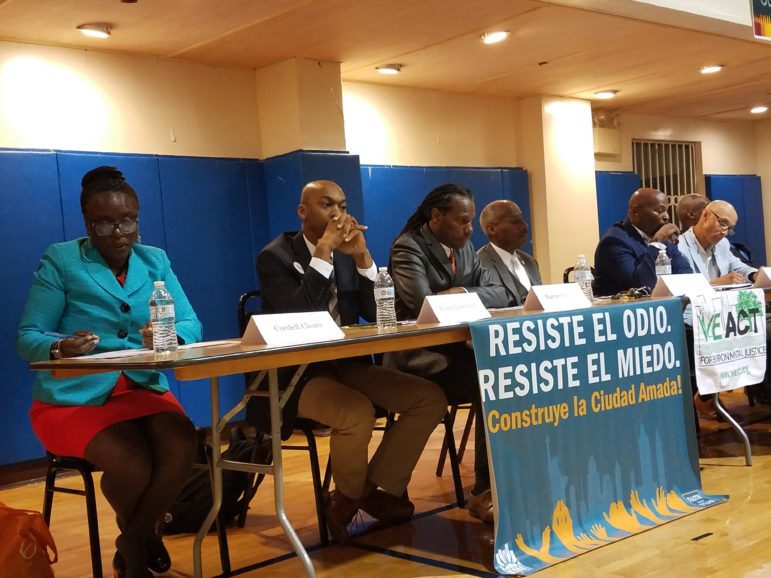
Jarrett Murphy
From left to right: Cleare, Gray, Holland, Perkins, Spruill, Tajiddin.
Cleare, Gray and Holland consistently presented the most policy detail. Gray, for one took issue with Perkins’ contention that the federal government had to take the lead on environmental policy. “We can’t rely on the federal government. We have to install policies here in New York City that benefit New Yorkers,” he said, ticking off ways that buildings—which generate 75 percent of carbon pollution—can be made more efficient, and noting that hurricane preparedness was an intensely local concern.
On policing, Holland called for getting rid of the Broken Windows enforcement strategy and stressed the importance of making sure “there’s a relationship between them and the communities.” Gray said that transparency and accountability were crucial. Cleare said there was need for broader bail reform and warned that the city must be careful in sharing information with federal immigration authorities “so we don’t get people deported for simple low level crimes.”
“I also believe that when there is no justice there is no peace. We have to trust that if you break the law you will be prosecuted. If you choke a man to death who said ‘I can’t breathe’ 11 times you should go to jail,” she said. “We have to get rid of racist and overly aggressive police in our community. We have to talk about it, identify it and get rid of it.”
Cleare stressed the need to preserve existing housing resources. “We have buildings that have lingered in the Tenant Interim Lease program for decades. We’re not going to forget about them. We are going to hold the city to what they are supposed to be doing for them,” she vowed. Cleare also said she wanted to explore subsidies of rent control for new businesses, and redirect public money from building shelters to creating permanent apartments. Expressing a general disdain for Mayor de Blasio’s housing plan, Cleare said: “When you are in a housing crisis you put a moratorium on luxury housing.”
For Holland, home ownership is key. “If people in Harlem are just going to become renters then gentrification is going to continue to happen,” he insisted. He said he opposed the rezoning of East Harlem because “it will lead to more people being pushing out.”
“The rezoning and the way the mayor is doing his housing plan is helping to drive people out of their homes,” he said. Holland also proposed uniting non-profit affordable housing managers to do bulk purchasing to generate cost savings. He wants to create a hub for high-tech jobs—although he said little about how—and envisions Harlem operating as an urban farm, with green roofs, community gardens and other environmental infrastructure working together. He snared the Daily News endorsement last week.
* * * *
Between Perkins and Cleare, separated by two other candidates, there was a fascinating dynamic. The senator twice gave Cleare credit for nudging him to focus on the scourge of lead poisoning as a Councilmember. Cleare noted her work for Perkins, which is a large part of the basis for her run—but not all of it.
“I’ve actually done the work. I’m not an outsider. I know the history of his community. I was there when we were getting water out of hydrants because there was no water service in our apartments. I was there when we had to get mail from post office because our mailboxes were broken,” Cleare said as she closed her case. “I was there for some very dark periods in Harlem.”
Gray doesn’t have that kind of history in Harlem. He moved there about a decade ago. But, he suggested, maybe something new is what the area needs. “If you think Harlem is doing fine, then vote for the status quo.”


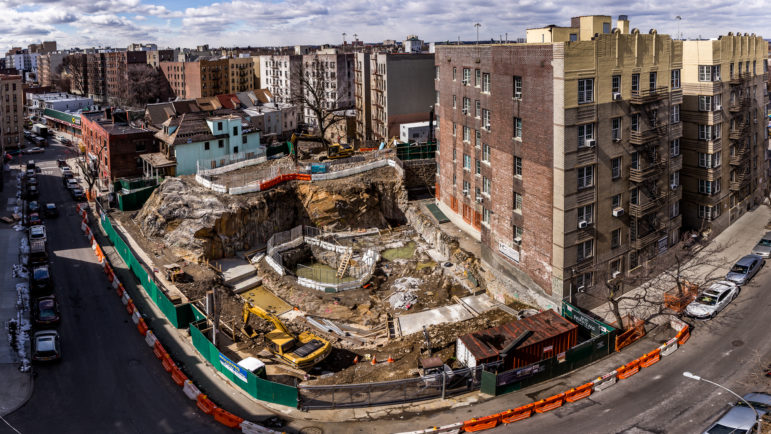

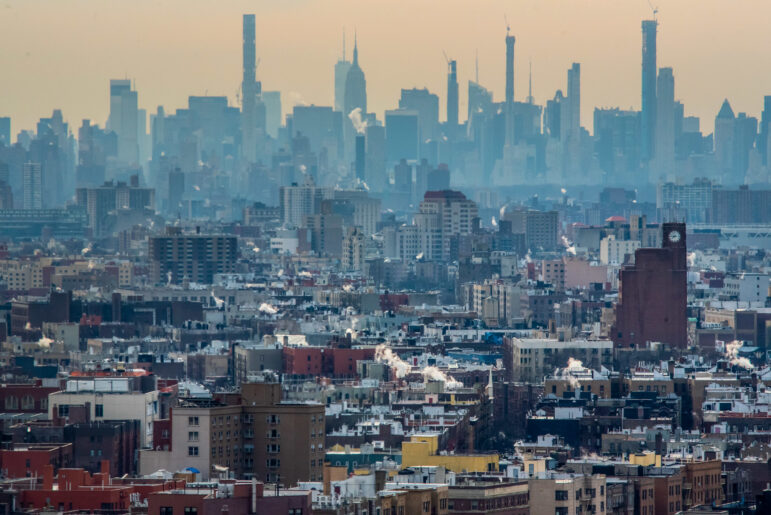

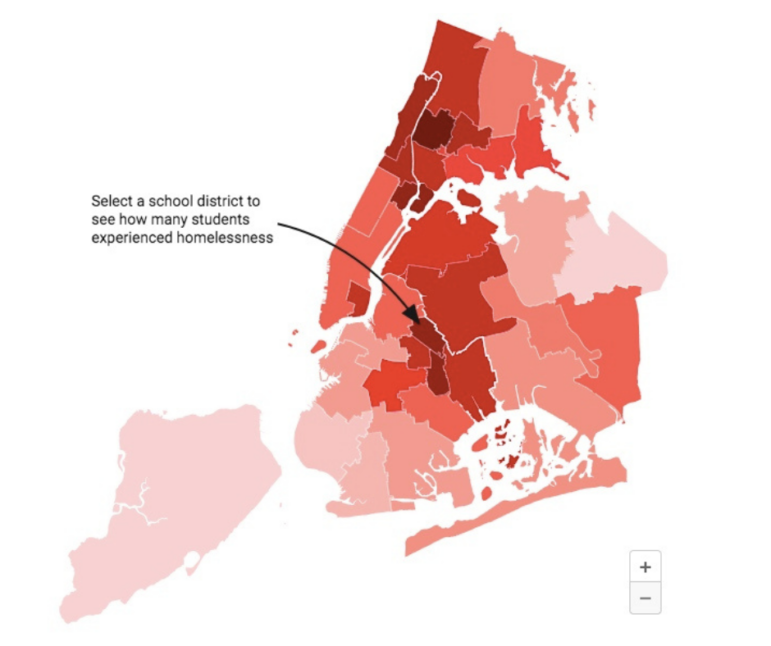


8 thoughts on “New Voices vs. Well-Known Name in Harlem Council Race Where Change is the Theme”
I really liked Marvin Spruill. He looked like he did’nt take no mess, and not a pushover. And you forgot to mention he also said, “Bill Perkins don’t represent Harlem, Bill Perkins represents Bill Perkins”. That was classic and so true. Marvin Spruill for City Council. The People’s Choice. NO SELLOUT!!!
Marvin Spruill is the only person I’ve seen before in Harlem. I have friend who knows him and said he’s a nice guy with a great sense of humor. A true Harlemite.
I’m voting for Marvin Spruill. I don’t trust and know nobody else. And I know he will do the right for our community and culture.
I know and like Holland. He’s fighting for the rights of the people of the community like he has done for his Transit Workers. He has a proven track record in getting things done. Holland will fight to give Harlemites the opportunity to be homeowners and not renters.
He is for job creation and developing high tech jobs in the village of Harlem.
Vote Holland on Sept. 12th
I’ve worked with cordel when she was with Perkins .ive witness hat in the trenches getting the work done she earning my vote
Pingback: Our choice for New York City Council | Beesquared
Cordell was one of the worst chief of staff’s when she worked for Perkins. Absolutely no follow thru by her at all. But, the real blame to her lack of follow thru is her boss Perkins. Currently you call, write, send an email to Perkins office, and you get no response back. Perkins needs to get it together when it comes to managing his office, and he relies on someone named Linda for everything,but this Linda doesn’t follow thru or return phone calls from constituents.
Well written article.